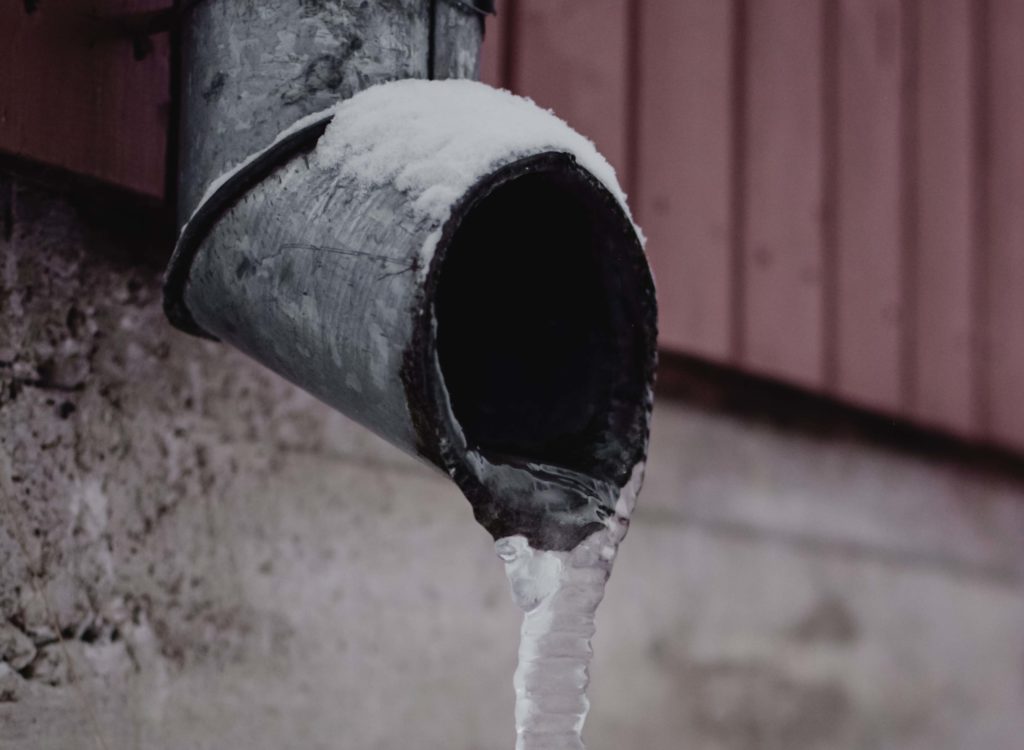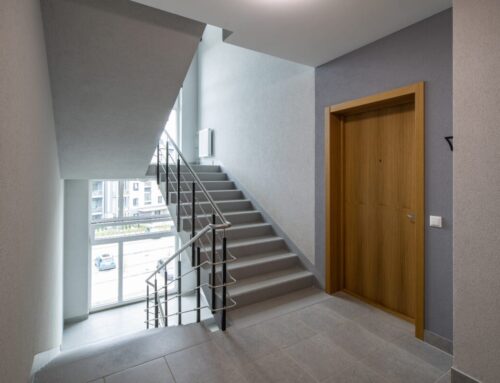Belinda Thorpe, Managing Director at Residentsline Flats Insurance, explains how to ensure your block of flats is protected in the event of frozen or burst pipes this winter.
 Winter will soon be upon us, and one of the most prolific issues a block of flats can face during the cold months is frozen pipes. The water damage that can result from a frozen pipe is not to be underestimated; the frozen water expands, bursting the pipe and allowing thawed water to escape. And we all know how fun water leaks are to deal with!
Winter will soon be upon us, and one of the most prolific issues a block of flats can face during the cold months is frozen pipes. The water damage that can result from a frozen pipe is not to be underestimated; the frozen water expands, bursting the pipe and allowing thawed water to escape. And we all know how fun water leaks are to deal with!
Follow our guidance below for what to do if you discover a frozen pipe in your building. We’ve also put together some steps you can take to prevent a winter disaster.
Step One: Turn the water off
It sounds obvious, but when you’re in a bit of a panic it can be hard to think straight.
Make sure you know where your stop cock is- you should find it under the kitchen sink or wherever the service pipe enters your flat. Also, turn off the stopcock in your cold-water tank if you have one.
Step Two: Protect the area
Protect the surrounding area of your flat and contents. Cover furniture and floors with plastic sheeting etc- you could even have some sandbags on hand for this purpose.
Step Three: Thawing Out
Before grabbing the hairdryer, turn on the tap nearest to the part of the pipe you think is frozen. This will allow the thawed water to flow through once it’s melted.
Then you can gently heat the frozen pipe with either a hairdryer or a hot water bottle. Take extra care with hairdryers- electrical equipment and water do not mix! Start from the tap end of the pipe and work backwards towards the cold-water tank.
Don’t be tempted to use a more ferocious source of heat- we’ve heard a few disaster stories involving heat guns and blow torches. Trust us, just don’t. Gentle heat is always best.
Preventing Frozen Pipes
Prevention is always better than cure and burst pipes are no joke for a block of flats. Tick through this list in the autumn months to protect yourself and your residents:
- Insulate your loft, if you have one, the sides of your water tanks and all pipes.
- Open the loft trap door on cold days to let heat in.
- If a resident of one of your flats is planning on being away for a while, suggest that they ask a friend or relative to check on their home to make sure pipes haven’t burst or frozen.
- Dripping taps may freeze and block pipes- always replace faulty washers promptly. You may also save around a litre of water a day!
- Make sure you and your residents know where the stop cock is and check regularly that you can turn it off easily. Consider labelling it so you remember where it is in a panic.
- In very cold weather, the heating is best to be set to low or to come on a couple of times a day, especially if the property will be empty for a while. Most modern boilers have a frost-protection thermostat which turns on automatically if the temperature drops to a level that will cause your pipes to freeze.
Preventative Measures for Other Winter Issues
Frozen pipes aren’t the only issue you may face as the temperature drops so we thought a quick reminder of some other preventative measures may be a handy and timely reminder for your block of flats:
Flat roofs: These should be checked regularly (even within their ten-year guarantee period) to ensure their condition. We recommend an annual check by a professional roofer. Your insurer may well ask for a copy of their report along with confirmation that any necessary maintenance has been carried out.
Trees: Take care to note any trees that look unstable or like they may be easily blown over in a storm. Remove any unsecure branches too.
Gutters: Avoid the expense and inconvenience of having to replace uncared for gutters or deal with the water damage and mould caused by blockages. A professional clear out once every two years should be sufficient unless you have lots of trees nearby or a mossy roof, in which case an annual clean might be needed.
Fences: Replace any loose or weather-worn panels around your block and give each one a shake to make sure they’re secure.
Garden furniture, pots and ornaments: Store these away wherever possible- they can be knocked over and damaged or could even be picked up by strong winds.
Preparation is everything and a little time spent in the autumn months can save you a lot of time, money and stress as the deep freeze approaches. Your residents will thank you.
Head to the Residentsline website for information on all our products and services or, if you’d prefer to speak to a member of our fantastic, specialist team, give us a call on 0800 281 235.




Leave A Comment